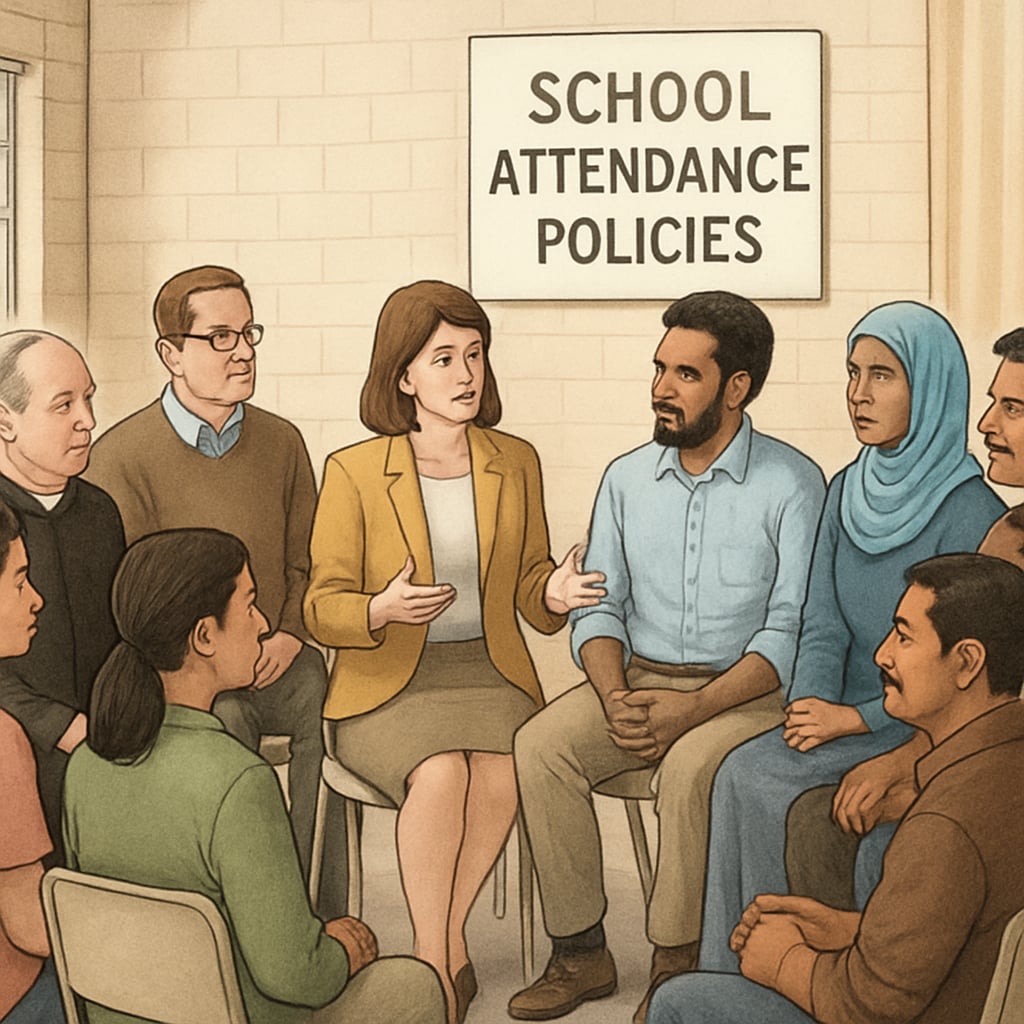Strict attendance policies in schools, while designed to combat truancy and improve academic performance, often lead to clashes between schools and parents. These disputes bring to light critical questions about the limits of educational oversight, the rights of parents, and the influence of religious institutions in public education. This article delves into these issues to examine the delicate balance between regulation and autonomy.
The Rise of Strict Attendance Policies
Over the past decade, schools have increasingly adopted strict attendance policies to address rising rates of truancy (unexcused absences) and ensure consistent student engagement. These policies often include measures such as daily attendance tracking, automatic notifications to parents, and penalties for unexcused absences. While such initiatives aim to support student success, they also raise concerns among parents who feel these rules infringe upon their decision-making rights regarding their children’s education.
For instance, many parents argue that strict policies fail to account for legitimate family emergencies, mental health days, or cultural observances. In some cases, families have reported negative consequences, such as fines or legal action, when their children miss school for reasons they consider valid. This tension highlights the broader issue of how schools balance their responsibility to uphold educational standards with respecting parental autonomy.

Parental Concerns: Autonomy vs. Oversight
One of the most contentious aspects of strict attendance policies is the perceived erosion of parental rights. Parents often believe they should have the final say in deciding when and why their child misses school, particularly for non-traditional reasons such as religious observances, cultural events, or personal well-being. However, schools argue that these policies are necessary to prevent chronic absenteeism, which can negatively impact academic achievement and social development.
In some regions, the enforcement of attendance policies has gone as far as involving child protective services or legal action against parents. This has led to widespread concern about the overreach of educational authorities. Critics argue that such measures treat parents as adversaries rather than partners in their children’s education.
To address these issues, some schools have begun implementing more flexible attendance policies, allowing for excused absences for mental health or family-related reasons. However, this remains a contentious topic, as not all institutions are willing to adapt their approaches.
The Role of Religious Institutions in Public Education
Another layer of complexity arises when religious institutions influence public education policies. In some cases, church-affiliated schools or religious advocacy groups have pushed for attendance rules that align with their beliefs, potentially clashing with broader community standards or secular educational goals. This raises questions about the appropriate boundaries for religious involvement in public education.
For example, some religious organizations advocate for strict attendance policies to enforce moral discipline, while others argue for greater leniency to accommodate religious observances. This can create conflicts not only between schools and parents but also within diverse communities where families may hold differing values.
As a result, policymakers must carefully navigate these dynamics to ensure that attendance policies are both inclusive and effective. This may involve consulting with various stakeholders, including parents, educators, and community leaders, to develop guidelines that respect diverse perspectives.

Finding Common Ground: Recommendations and Solutions
To address the ongoing tension between strict attendance policies and parental concerns, schools and policymakers can consider the following approaches:
- Flexibility in Attendance Rules: Schools should consider allowing excused absences for a broader range of reasons, including mental health and cultural observances.
- Transparent Communication: Establishing clear and open communication channels between schools and parents can help reduce misunderstandings and foster collaboration.
- Community Involvement: Involve parents, educators, and community leaders in the creation and review of attendance policies to ensure they reflect diverse needs and values.
- Supportive Interventions: Instead of punitive measures, schools can offer counseling or mentoring programs to address the root causes of truancy.
By adopting these strategies, schools can create attendance policies that are both effective and respectful of parental rights, ultimately fostering a more collaborative educational environment.
Conclusion: While strict attendance policies aim to address serious issues like truancy, they often spark debates about the balance between educational oversight and parental autonomy. By engaging in open dialogue and adopting flexible, inclusive approaches, schools can better serve their diverse communities while maintaining high educational standards.


